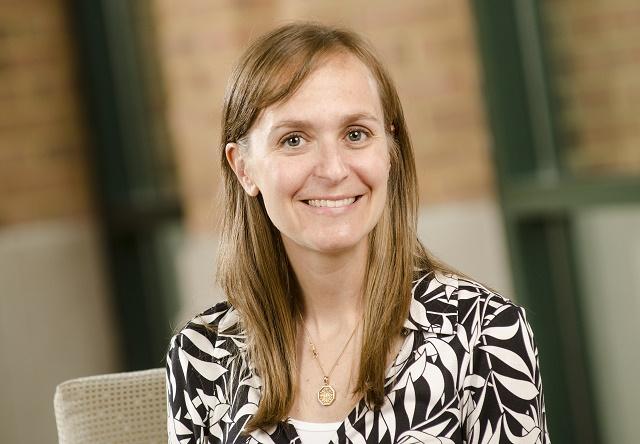Amy Hale, MD is an active member of First Presbyterian Church in Columbus, Indiana, and a primary care physician at VIMCare Clinic, formerly known as Volunteers in Medicine, part of Columbus Regional Health. The VIMCare Clinic provides care to patients without a primary care physician who are uninsured or have Medicaid coverage. Before returning to her hometown of Columbus to care for patients, Dr. Hale served two years in Swaziland as a United States Peace Corps volunteer. She is the latest faith-motivated healthcare provider and advocate to join us for our Five-Question Interview:

Q: What do you consider the most important work that you do?
I think primary care, in particular, starts with building strong relationships. It might sound funny that the most important "healthcare" work that we do at our clinic is relationship building, but I really consider it the foundation upon which all future work with our patients grows.
Q: What motivates you to do your healthcare work?
People come to our clinic when they are in need. Many of them tell me things that they have never told anyone else. It means a lot that people trust me with the most intimate and often painful details of their lives. I am motivated to work hard for my patients because I want to be worthy of the trust that they place in me.
Q: What are the biggest challenges you—and your patients—face?
There are so many challenges in healthcare today. The high cost of medications. Prior authorizations from insurance companies. Continued lack of access to affordable coverage for many. Less time with patients. The social determinants of health, which include lack of access to housing and transportation, cultural and language barriers — to name just a few. In primary care, we often cannot begin to address patients’ physical health until we have addressed the social aspects. But we often find ourselves lacking the tools to address these things.
Q: What do you think the U.S. healthcare system should look like?
I believe the U.S. should adopt a universal healthcare system. Healthcare is a human right and should be accessible to all. Lack of ability to pay should not be the single determining factor in a person's ability to attain good health.
Q: What role do you see people of faith and faith communities playing in making the needed changes?
As people of faith, we are called to love and care for one another. We have a responsibility to be catalysts for healthcare reform in this country. (Editor’s note: See our Faith in Healthcare interview with Rev. Jimmie R. Hawkins is the director of the Presbyterian Church U.S.A. Office of Public Witness here.) That goes beyond just attending church once a week. We have to organize ourselves, find our collective voice and make that voice heard!
Faith and Healthcare Notes
Medicaid is Politically Popular. In the Washington Post, Greg Sargent writes that Republicans may be losing their appetite for opposing Medicaid expansion. The switch is not a selfless one: supporting Medicaid has proven to be an important pro-Democrat factor in recent statewide elections in Kentucky, Louisiana, Kansas and Virginia. Sargent cites a recent Kaiser poll showing that 71 percent of Americans have been covered by Medicaid themselves or had a child, friend or family member covered.
New Stomach Cancer Drug Price Tag: $32,00 per Month. Reuters reported this shocking cost to persons in desperate need of the medicine. As Patients for Affordable Drugs’ Julianna Keeping said in forwarding on the news, “It shouldn’t be just another day in drug pricing. But it is.” See articles from Faith in Healthcare here and here about how we can dramatically lower drug prices. One of those paths is included in a bold new proposal from California:
California Governor Proposes Public Pharma Plan for Generic Drugs. California Governor Gavin Newsom last week announced plans for his state to be the first create its own generic drug label and make generic prescription drugs available for sale to all Californians. This plan was part of a Public Pharma proposal made by Democracy Collaborative and covered in Faith in Healthcare in this September article, “Removing the Profits from our Pills.”
